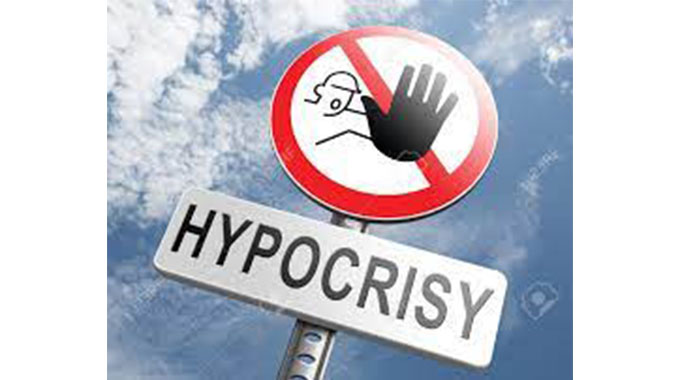US demands for ‘fiscal transparency’ hypocritical

Mercy Simbirori, Correspondent
A few days ago, the United States of America released a report on global “fiscal transparency” by governments across the world.
The report is dubbed, “2022 Fiscal Transparency Report” and the US Congress received the same as prepared by the Department of State whose missions across the world compile the information.
At face value, the report seems innocuous.
According to the State Department, fiscal transparency informs citizens how government and tax revenues are spent and is a critical element of effective public financial management. Transparency provides citizens a window into government budgets and those citizens, in turn, hold governments accountable. It is claimed to underpin market confidence and sustainability. The congressionally mandated Fiscal Transparency Report (FTR) is a tool to identify deficiencies and support needed changes. The Office of Macroeconomic Affairs (OMA) of State’s Bureau of Economic and Business Affairs (EB) prepares the annual FTR in consultation with State’s Bureau of Energy Resources (ENR) and the US Agency for International Development (USAID) .
The main purpose of collecting this data from the 141 countries is to ascertain that they are eligible to receive US foreign assistance and are expected to “make key budget documents publicly available within a reasonable period”.
“They must be substantially complete and generally reliable,” the State Department asserts.
“Governments must also follow a transparent process for awarding government contracts for natural resource extraction,” the State Department adds.
In the report released in September 2022, 72 countries met minimum requirements and 69 did not. Of those 69, the FTR identified 27 countries that made significant progress towards meeting the requirements.
Zimbabwe was found to be in the latter category, that is, it allegedly failed to meet minimum requirements but was deemed to have made “significant progress towards meeting requirements”.
Hypocrisy
The above measurements are not innocuous. Firstly, the US is corrupt itself and shouldn’t arrogate itself policeman of the world. A number of studies confirm this.
According to a review by the London School of Economics, in the minds of many, government corruption tends to be a problem largely limited to developing countries; yet, in a research Cheol Liu and John L Mikesell, it was found that corruption across US states is a major — and costly — problem.
“They find that the 10 most corrupt states could have reduced their annual expenditure by more than $1 300 per capita, if their level of corruption was reduced to the states’ average,” the LSE review noted.
In the US, states with a higher level of corruption are likely to favour capital, construction, highways, total salaries and wages, borrowing, correction, and police protection and spend less on education, health, and hospitals.

In the US, social sectors suffer because corruption is likely to distort states’ public resource allocations in favour of higher potential “bribe-generating” spending and items beneficial to public officials directly.
This phenomenon is widespread in the US and it is absolutely hypocritical for America to pose as some squeaky-clean authority.
The worst outcome of this is that the US uses accusations of corruption to demean other countries, or to justify why it cannot support them financially (even with strings attached!).
At international level, the US is responsible for grand theft of other countries’ resources as it wages wars, imposes client leadership or destabilises nations.
The US has not been able to account for its activities in these scenarios.

US Agency for International Development
Irony
Another irony is that the US channels billions of aid, including through USAid, that goes unaccounted for and prone to abuse.
The aid does not benefit people in the developing countries. A few years ago, USAid confirmed that it had uncovered abuse of funds running into millions by local partners, whose directors diverted monies into personal use, living plush lifestyles and corruptly benefiting their cronies.
With sanctions against Zimbabwe in place, Western donors like USAid, have been channelling funds through civil society or non-governmental organisations, itself a parallel process to undermine legitimate authorities.
However, the funds have been siphoned off and laundered, including for advance of undeclared political purposes.
In a newspaper comment, one editor observed that, “The lifestyles of some of the people who work in NGOs, characterised by posh mansions and cars, raise eyebrows, earning them the description ‘champagne revolutionaries’”.

On the other hand, donor funds are in the majority utilised for administrative purposes such as buying cars and renting plush offices while another huge chunk goes to suppliers and contractors from donor countries.
Instrument of control and war with China
Further analysis shows that, the inquiry into independent countries’ “transparency”, is linked to the US’ desire to control those countries’ natural resources.Apparently, America is not happy with countries where it has little control over natural resources, such as Zimbabwe.
The State Department assesses “whether the process for awarding licences and contracts for natural resource extraction is outlined in law or regulation and followed in practice, and whether basic information on such awards is publicly available.”
In the case of Zimbabwe, the State Department concluded that: “The Government specified in law or regulation but did not appear to follow in practice the criteria and procedures for awarding natural resource extraction contracts or licences. Basic information on mining concessions was not publicly available.”
It is a well known fact that the US has been unhappy that it has lost foothold in investing in the natural resource sector in Zimbabwe to China.
China is the biggest investor in Zimbabwe at the moment, with Beijing even getting favourable conditions because of friendly political relations between the two countries.
This has made the US unhappy
There have been revelations of the US sponsoring civil society, media and environmental activists to smear Chinese investments in Zimbabwe.
The so-called fiscal transparency report, with a key pillar on natural resource governance and extraction, is a political statement, rather than a neutral instrument.
With the US losing out on Zimbabwe, it explains why such reports score the country lowly, with a view to further degrade its image.











Comments